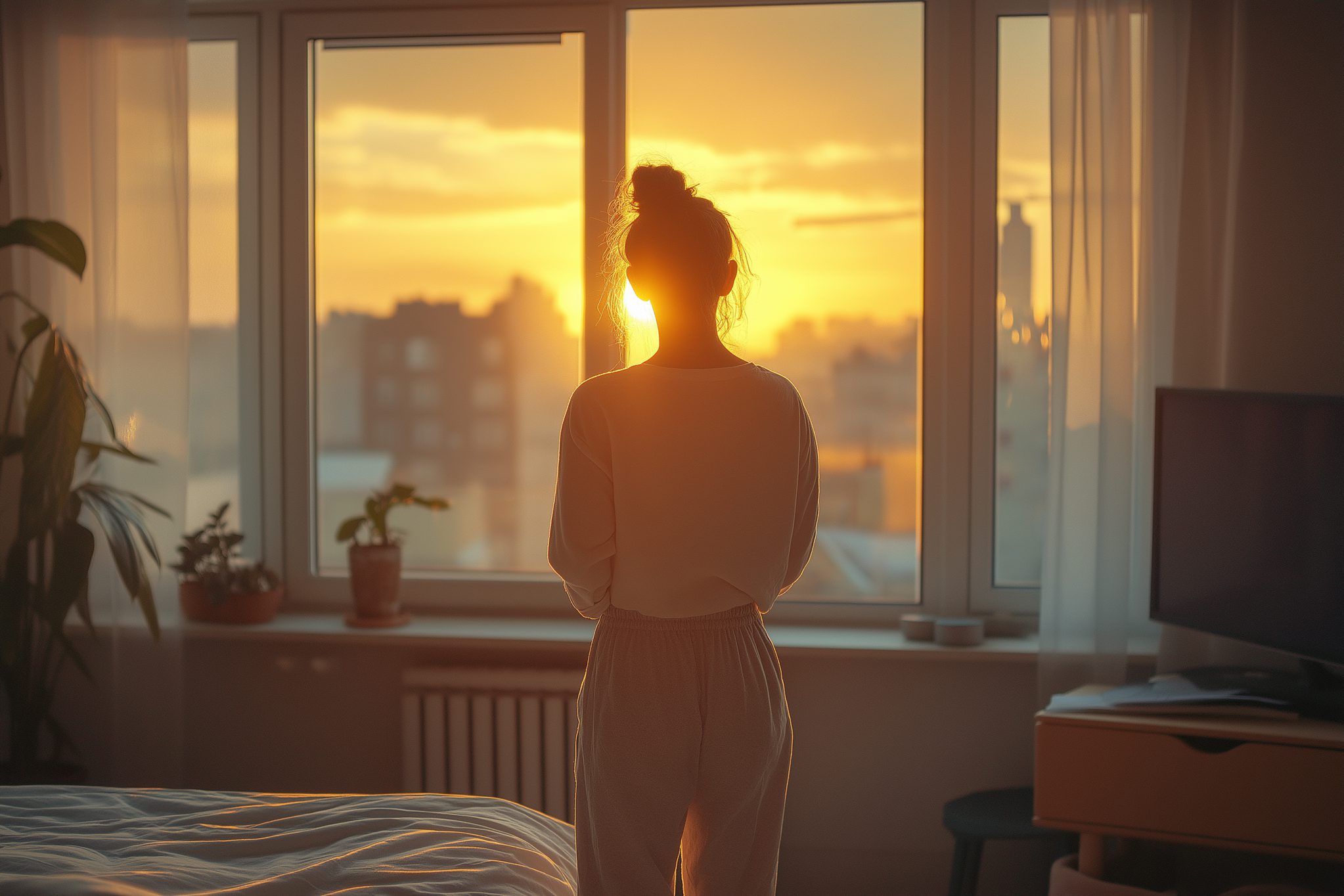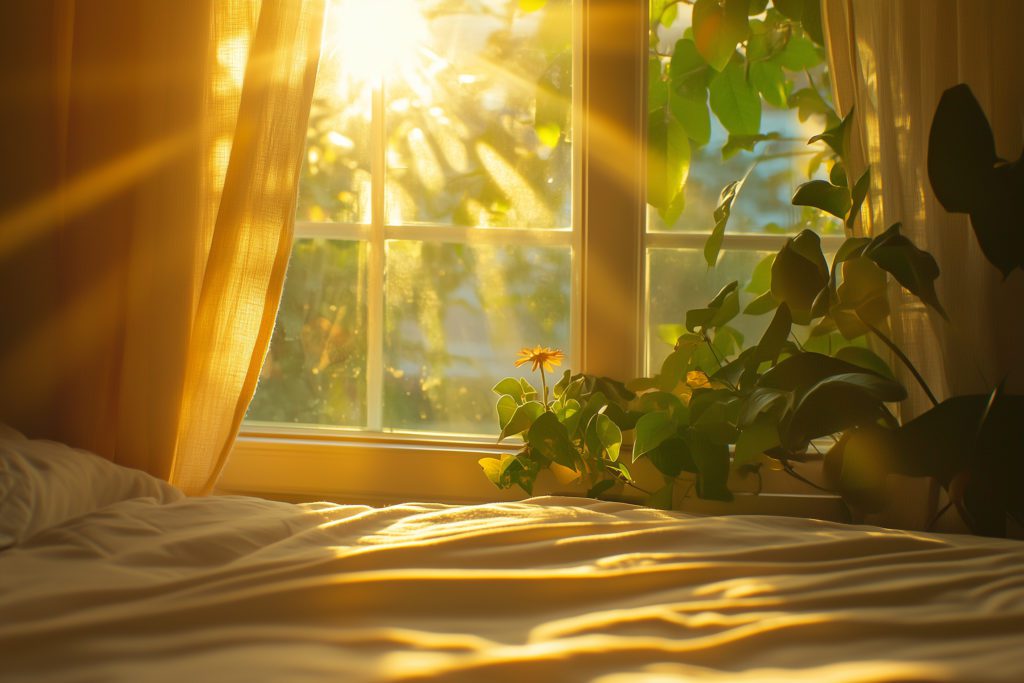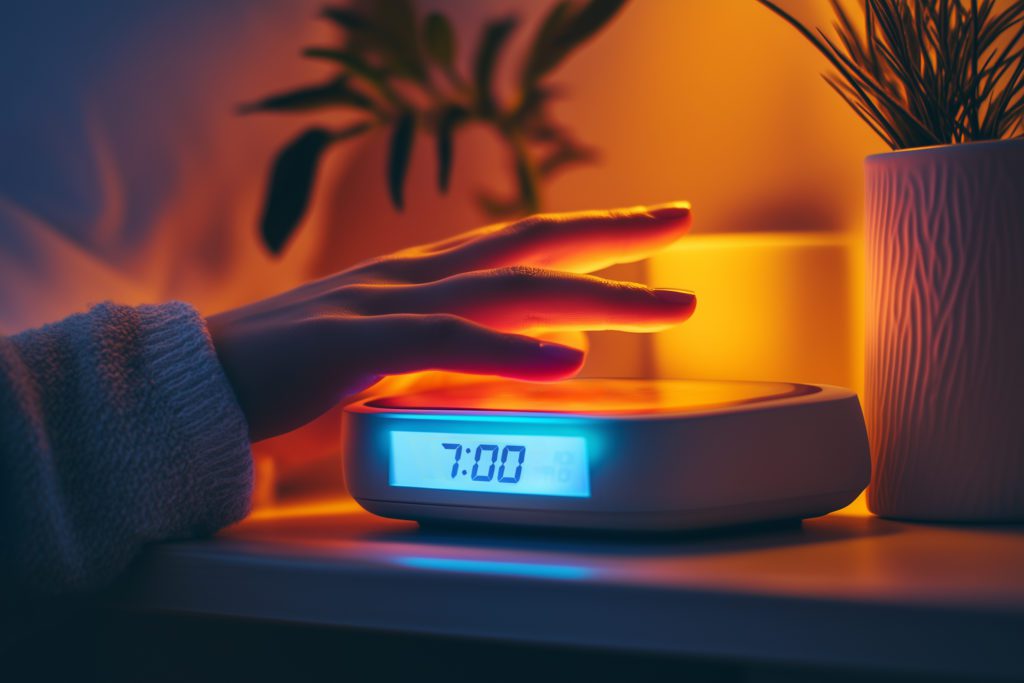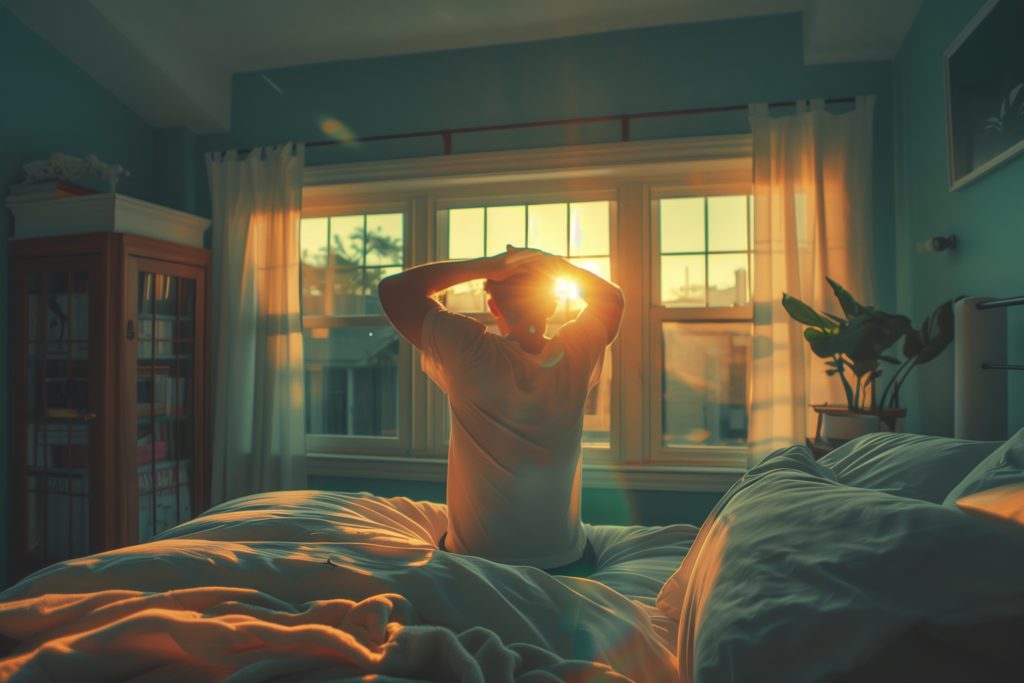
The Connection Between Early Rising and Sleep Health
Learn about the connection between early rising and sleep health if you're thinking about waking up at 5 a.m.

What do the people who wake up at 5 a.m. know that the rest of us don't? There could be a connection between early rising and sleep health that's giving them the edge. You might consider adjusting your wakeup time after you learn all about it.
Why Is Early Rising Popular?
Millions of people around the country wake up before sunrise simply because they need to get to work or take care of children. However, some people do it purely by choice. You may have heard many celebrities boasting about waking up by 5 a.m. or earlier each day. There's even a book called "The 5 AM Club: Own Your Morning. Elevate Your Life." by Robin Sharma that has spurred a whole movement of earlier wakeup times. Followers of the book follow a regimen of waking up at 5 a.m. before spending 20 minutes on exercise, 20 minutes on reflection, and 20 minutes of planning or studying.
There's a lot of information out there about why being an early riser is good for your health. Many members of the 5 a.m. club find that they are able to be more productive during those early hours. This can ultimately lead to reduced stress because we aren't trying to cram more tasks into the morning during times when others are awake to distract us. One study found that people who get up one hour earlier compared to later risers experience a 23% lower risk of depression.
However, the real benefit of waking up early may be its link with improved sleep health. When we go to bed and when we wake up both matter. That's because our sleep times in relation to daylight hours help to set our circadian rhythm.
Understanding Sleep Times and Circadian Rhythm
Circadian rhythms are the physical, mental, and behavioral changes an organism experiences over a 24-hour cycle. Light and dark have the biggest influence on our circadian rhythms.
Getting up early enough to get exposure to the first light of the day could improve sleep quality. Seeing bright light in the morning will help you fall asleep easier at night. The human body thrives when following a pattern that includes falling asleep soon after dark and waking at first light. An irregular circadian rhythm can have a negative effect on a person's ability to sleep and function properly. It can also bring on health problems that can hurt sleep quality and overall quality of life.
Early Rising Times Can Help to Restore a Busted Circadian Rhythm
There are many reasons why we might disrupt our natural circadian rhythms. Shift work is one of the biggest risk factors. Overall, shift workers in the United States are chronically sleep deprived. However, some people who could control their sleep and wake times if they wanted to actually choose to disrupt their circadian rhythms due to bad habits. This can include staying up late gaming or watching shows, scrolling on your phone before falling asleep, or simply ignoring alarm clocks in the morning.
Getting in a habit of consistently waking up at 5 a.m. can be like a reset for bad sleep habits. With such an early wakeup time, you may be more likely to fall asleep at a reasonable hour at night. For people who join the 5 a.m. club, the rewards that come with feeling more refreshed and energized are often enough to get them hooked.
How to Become an Early Riser If It Doesn't Come Naturally
Waking up at 5 a.m. should never come at the expense of your sanity. Here are some tips for how to pivot your wakeup time to earlier in the morning.
Don’t Sacrifice Sleep
You won't be able to successfully join the 5 a.m. club if you're still part of the bedtime-after-midnight club. Be honest about the way your schedule and life duties realistically represent your ability to wake up by 5 a.m. each day. You can still wake up earlier even if 5 a.m. is too early.
If you want to adjust your wakeup time, you need to adjust your "tuck in" time. Work your way backwards from 5 a.m. when setting your alarm to ensure you're still getting the minimum seven to eight hours of sleep most adults need. The benefits of waking up at 5 a.m. are erased if you need to drop your sleep down to below seven or eight hours to do it.
Optimize Your Room for Good Sleep
Your bedroom should be cool, dark, and quiet each night if you want to be able to spring out of bed at 5 a.m. each morning. Remove any distractions from your bedroom that could tempt you to procrastinate when it comes to sleep. Remove or block any artificial light that comes from a screen or streetlight. You may need to purchase blackout curtains or a noise-canceling machine in order to create the optimal space.
Don’t Get Mad If It's Hard
If you're a night owl in recovery, this journey will be tough. You will constantly be fighting against the urge to revert back your distorted circadian rhythm. The habits that got you on a poor schedule will be there tempting you. That might include staying up too late watching shows or scrolling social media. If you usually socialize at night, you will need to have the willpower to turn down invitations to late dinners or drinks.
Don't Be a Perfectionist
Don't throw away your progress if you hit the snooze button one morning. Even steadfast members of the 5 a.m. club sleep in from time to time. Simply make the decision to refocus your efforts on hitting your target wakeup time the next day.
What could you accomplish if you joined the 5 a.m. club? Pillow can help you measure sleep quality and duration as you make your new sleep plan. Pillow users generate custom sleep reports that provide insights on sleep health.

Written by
Emily Mendez
Emily Mendez is a former therapist and mental health author. She is one of the leading voices in mental health. Emily's writing has appeared in eCounseling, SonderMind, and more. Emily is frequently interviewed by Healthline, Fatherly, INSIDER, Family Circle, and other national media for her advice and expert opinion on the latest mental health topics.
Download Pillow
Get help
Press & News
Legal
Connect
X (Twitter)
Company
Copyright © Neybox Digital Ltd.



